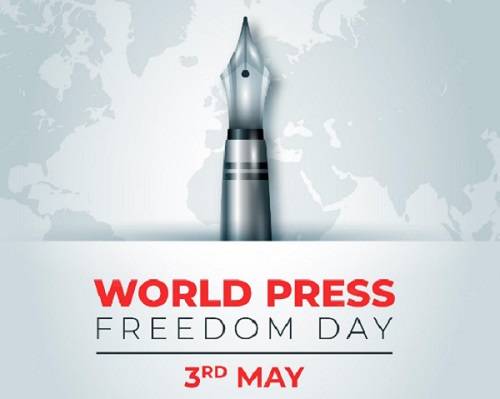
Freedom of expression - A driver for all human rights
Today is World Press Freedom Day.
It is a day to recognise the work and efforts of journalists around the world, to underline the importance of press freedom, and to remind governments of their obligation to safeguard and uphold the right to free expression.
World Press Freedom Day was established in 1993 as a result of a recommendation to the General Assembly of the United Nations Educational, Scientific, and Cultural Organisation (UNESCO) by the Windhoek Declaration, a statement of press freedom principles issued by African journalists in Windhoek, Namibia, which influenced UNESCO's proposal.
The anniversary theme for this year is: “Shaping a Future of Rights: Freedom of Expression as a driver of All Other Human Rights,” and the local interpretation: “Freedom of Expression: A driver for all human rights for Ghana’s development,” seems not to reflect the happenings in Ghana.
Yet, the worldwide remembrance of the day is notable because it also marks the 30th year of its observance.
Thus, the theme is a call to all to refocus on freedom of expression and the media as critical to the enjoyment of all other rights and freedoms, even as the world around us changes dramatically, with events such as the Russia/Ukraine war, the recent Sudanese war between rival military leaders, climate change, near economic downturn and so on.
Article 162 (1) of the 1992 Constitution declares, “Freedom and independence of the media are hereby guaranteed.”
Indeed, Chapter 12 of the said Constitution grants a variety of liberties to the media, including freedom from censorship (Article 162 (2)), total freedom in the establishment of private press or media (Article 162 (3), and freedom from control or interference of editors or publishers of newspapers and other mass media institutions (Article 162 (4)).
These privileges come with responsibilities, which are spelt out in the same document.
Ghana’s media has a troubled past.
There have been ups and downs even under long-established democratic regimes.
We recall incidents of brutalisation of media personnel in the discharge of their duties that are considered unconstitutional and stifle the freedom of expression.
These acts of brutality do not find favour with the Constitution and moreover run against the belief that the free expression is a driver for all human rights for Ghana’s development.
As we observe the Day, a rallying cry is issued for the country to refocus on media freedoms and to establish a prerequisite for access to all other rights and freedoms.
Another sore point in the promotion of the rights of freedom of expression is the poor conditions of service of media practitioners.
According to the newly released State of the Ghanaian Media Report by the Media Foundation for West Africa and the University of Ghana's Department of Communication Studies, journalists have long been abused economically in the country, with salaries in the industry averaging around GH¢1,000.
Other challenges, as detailed in the research, include safety of journalists which is not always guaranteed, particularly for investigative reporters; deplorable working conditions and policies that dwindle the hope of practising.
We request that the government settles all unresolved situations affecting journalists as that would be a good demonstration of faith to journalists.
Furthermore, there must be evidence of commitment to make the media so independent that they do not fear whose ox is gored in their reporting.
To be independent and efficient, the media must never be an attachment of any administration or rely on the generosity of any.
We support the Ghana Journalists Association’s commitment to champion the rights of journalists and promote their cause.
